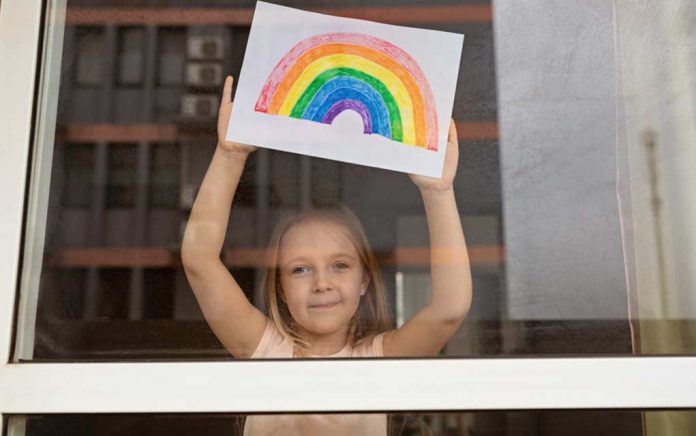
(AscendHealthy.com) – The sun is shining, you miss your friends and you feel great! Sure, you went to the grocery store, the gas station and the ATM earlier in the week — but you were careful. What could the harm be in going to visit a friend or family member? Is it really that critical to continue to isolate? The answer: Yes. We have more information on why it’s so important to isolate even if you’re feeling well.
| Quick Read: More than 10% of people with COVID-19 were infected by someone who showed no symptoms. People who are asymptomatic or presymptomatic can transmit the virus to others. Because they have no symptoms, they don’t realize they have the virus. While anyone could be at risk, vulnerable populations are most at risk from this silent, insidious vector of infection. Isolation is still the best way to keep from inadvertently infecting others, even if you’re feeling well. Get more details in the full-text article. |
Here’s Why You Should Isolate Even If You Feel Healthy.
The Speed of an Epidemic
In part, COVID-19 spread so quickly because it has a shorter serial interval than similar viruses. Serial interval, which is a way to measure virulence, is the amount of time between when the symptoms of the primary patient (the infector) begin and the onset of symptoms in the patient who catches the virus from them (the infectee).
According to data presented in the New England Journal of Medicine (NEJM), the serial interval for SARS-CoV-2, the novel coronavirus, is about 4 days compared to SARS (8.4 days) or MERS (14.6 days). The serial interval for COVID-19 means that it can spread much faster and requires a more aggressive response in order to contain or mitigate community-based infections. But the short serial interval was also one of the first indicators that asymptomatic and presymptomatic transmissions could be occurring.
How Long Until COVID-19 Symptoms Show?
The Centers for Disease Control and Prevention (CDC) advises that symptoms can develop from 2-14 days after exposure. But a study released in March showed that the average time for 95% of people who develop symptoms is 5.1 days — or about a day longer than the serial interval.
And while numbers vary wildly, other research seems to indicate that between 25-50% of all coronavirus cases could be asymptomatic (not showing symptoms at all) or presymptomatic (not showing symptoms for an extended time).
When we know we’re sick, we take precautions, stay home, and stay away from our families and friends. But what the collection of information is showing us is that often enough, a person doesn’t even know when he or she is infected — and that person becomes a vector for more people to become sick.
Isolation is the Fastest Way to Contain Infection
Social distancing and physical isolation are the fastest ways to contain fast-moving, wide-spread infections like COVID-19. They are the tools we’ve used in an attempt to flatten the curve to keep the number of infections within the capability and resources of our medical systems. But even these tools are only effective if they are put in place early enough in the course of the pandemic.
An additional interim step was taken by the CDC recently when they asked people to wear face coverings in public. The hope is that face coverings will help minimize the viral droplets being spread by people who are asymptomatic or presymptomatic through coughing, sneezing, laughing, talking and even breathing. Masks may help, but they’re not a perfect solution.
The bottom line is that social distancing and physical isolation, even when you feel well, are still the most effective ways of ensuring that you neither give nor receive the coronavirus. If you must go out for essentials, be sure to wear a face covering, wash your hands and sanitize communal surfaces.
If you’re missing your tribe, you can still reach out via phone, text, or video call to friends and family to spend time, play games, watch movies, virtually meet up or simply comfort each other. You’re not just protecting yourself. You could be saving the lives of others, too.
~Here’s to Your Healthy Ascension
Copyright 2019, AscendHealthy.com













